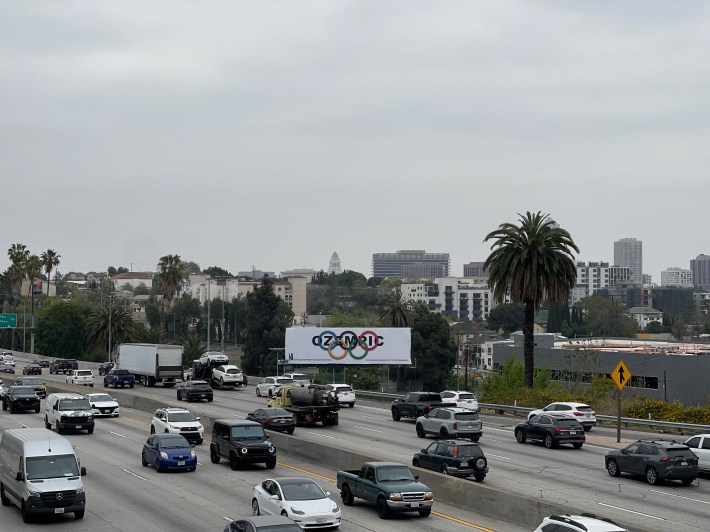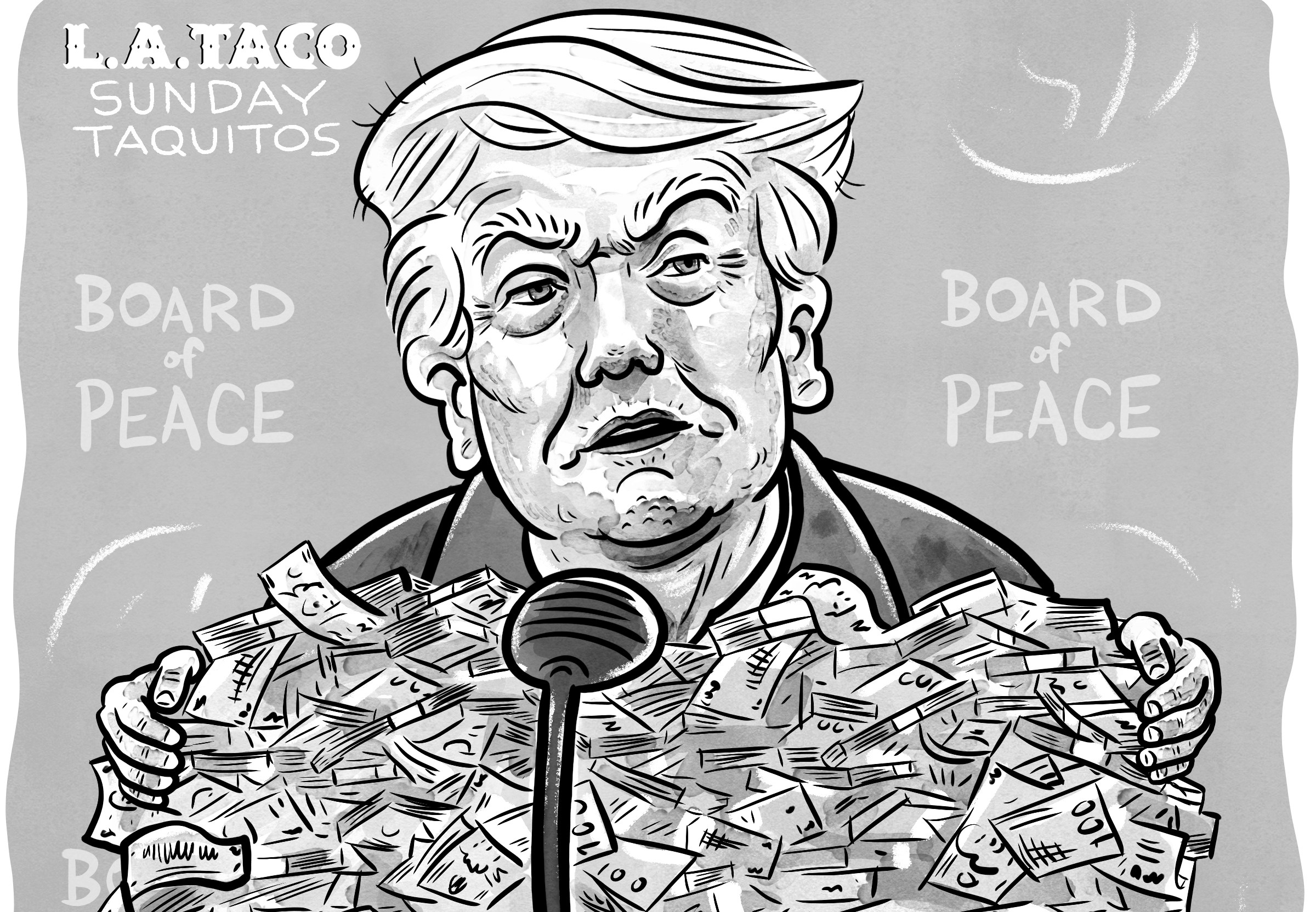On Tuesday morning, a giant, provocative billboard display appeared alongside the 101 Freeway in Echo Park announcing that Ozempic, the popular diabetes medication turned viral weight loss drug, is an official sponsor of the 2028 Olympics.
Twenty-four hours later, the mysterious billboard was covered up.
A spokesperson for LA28—the Los Angeles Olympic planning commission—did not respond to multiple requests for comment sent via email. But the here-today, gone-tomorrow timeline of the billboard’s lifespan suggests that it’s not a legitimate partnership. Especially considering that Eli Lilly, the pharmaceutical giant who sells diabetes and weight loss drugs that compete with Ozempic, already announced a partnership with LA28.
When reached for comment, Jesus Hands AKA Zach Fernandez, the artist whose name appeared in the right-hand corner of the billboard, told L.A. TACO that they could not confirm or deny if they were responsible for the stunt.
Jesus Hands is best known as the “disruptor” and artist who scaled the Hollywood sign back in 2017 and changed it to read “Hollyweed.”
Speaking on the Ozempic billboard in Echo Park, Jesus Hands told L.A. TACO during an interview earlier this week that “The piece serves as a mirror of society.”
“Peak performance is no longer associated with hard work and dedication…it’s more associated with an Instagramification model,” the artist explained. “People in the Olympics train for their lives to be the most optimized versions of themselves. Ozempic levels the playing field.”
Jesus Hands believes there are pros and cons to Ozempic. “I can’t really say it’s either good or bad. The better question is, what does it say about us as a society?”
As far as the Olympics go, Jesus Hands says, “There’s so many conversations to be had.”
“On one hand, I don’t think the city is fucking prepared,” he said. “On the other, the image that the city is trying to portray is different than the real L.A. culture.”
As an example, Jesus Hands mentioned the various LA28 Olympic logos that were designed by a mix of athletes, artists, and celebrities, including Billie Eilish and Reese Witherspoon. “Pretty much all of them were garbage,” he said, although there are so many talented artists here.
“We’re not ready,” Jesus Hands reiterated. “Too bad there’s not an Ozempic shot for the city of L.A.,” he joked.
Ultimately, however, Jesus Hands believes that “the Olympics will be great because the real people who make up L.A. will go even harder.” He views the graffiti towers as a perfect example of this dichotomy between the “real L.A.” and corporate interests.
As an artist, Jesus Hands wants “to be that person to hold up the mirror.” Looking back on his viral “Hollyweed” project in 2017, Jesus Hands said his artwork is more about how people respond to it rather than about him trying to convey a specific message. “I want to be able to feed the echo chamber with a glitch in the matrix,” he said.

On the same day the Ozempic billboard went up, Jesus Hands received a three-page letter from an attorney representing LA28 over the alleged “unauthorized use of the Olympic Rings” as well as “host city name marks such as Los Angeles 2028 and LA28.”
Jesus Hands noted that graffiti and other artworks previously presented on the billboard near the 101 Freeway remained untouched for months.
“But when you put something up there with a message, they’re like, 'Oh no you don’t,” he said.






